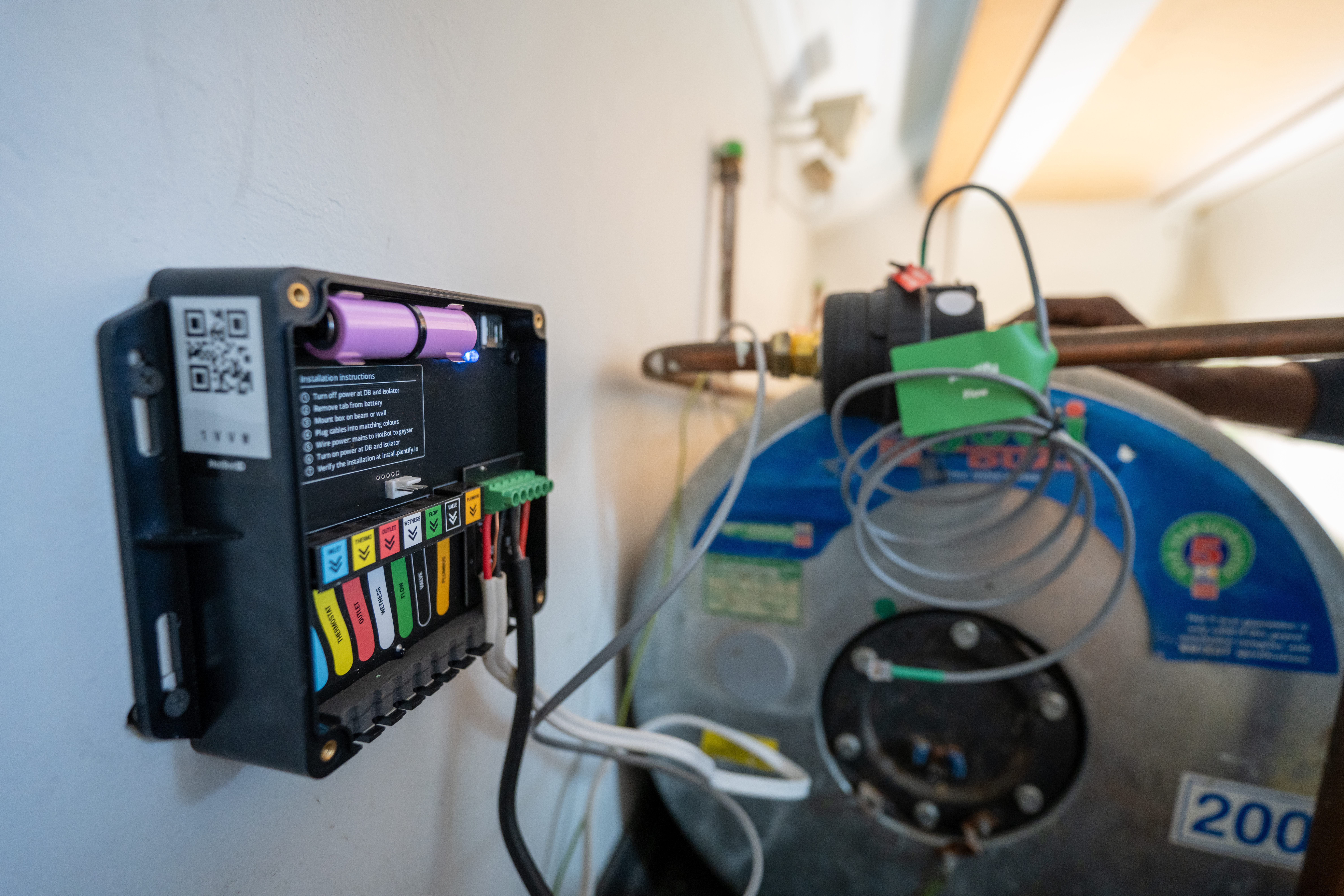
Building climate resilience through cleantech investment
Fund Updates · Feb 26, 2024
Cleantech investment has
nearly quadrupled since 2018
. However, the cleantech industry continues to face some considerable difficulties, including limited spending on research and development. The TELUS Pollinator Fund for Good is addressing these funding gaps by investing in innovative technologies and startups of all sizes and at all stages. The fund recently participated in three investments that will strengthen climate resilience with agricultural technologies to sequester carbon, plant-powered alternatives to plastic and cleaner energy solutions.Helping to solve the world’s climate crisis has long been an ambition for Jason Aramburu and Morgan Williams.
It’s why, three years ago, they co-founded their company,
Climate Robotics
. The Houston-based startup helps farmers to affordably collect and process agricultural waste, known as “biomass,” and convert it into something called “biochar” to be dispersed back into the soil.The result? Vastly reduced greenhouse gas emissions from
agriculture and farm systems
, a significant industrial GHG contributor
, and improved water and nutrient retention in fields, resulting in an average 16-per-cent yield improvement.“
Farms produce billions of tonnes of biomass globally
: everything from corn husks to wheat straw and whatever is left over after a crop is harvested,” says Mr. Aramburu, chief executive officer with Climate Robotics. “But instead of letting the biomass decompose, which releases carbon back into the atmosphere, it can be burned in a high-heat, low-oxygen process known as pyrolysis to create biochar.”Done on a massive scale, research suggests that billions of tonnes of carbon dioxide can be sequestered every year by processing low-value feedstocks and transforming them into biochar, according to Mr. Aramburu.
To date, the biggest hurdle to achieving that goal has been cost. Biochar is typically an expensive product that is out of reach for most farmers. Climate Robotics makes the process accessible through its mobile, robotic technology. Everything is done at the farm instead of transporting biomass from farms to processing facilities that transform it into biochar and then ship it back to farmers who spread it on their fields.
Climate Robotics is ready to take the next big step.
“To scale our technology, we need the support from investors who share our goal: driving environmental change,” he says.
The TELUS Pollinator Fund for Good is one of the impact investors who stepped up and participated in Climate Robotics’ funding round of US$20-million.
“We are investing in the next generation of businesses who believe, like TELUS, that good business and doing good in our communities go hand in hand,” says Blair Miller, managing partner of the TELUS Pollinator Fund, which invests in for-profit startups and companies committed to driving innovation and transformative solutions that make the world a better place.
“Ultimately that means widespread adoption of zero-emission solutions or improved access to healthy food leveraging sustainable food systems,” adds Mr. Miller.
Tackling the plastic crisis with plants

Alongside Climate Robotics, the TELUS Pollinator Fund recently participated in an oversubscribed funding round of $6.5-million from
erthos
, increasing the startup’s total financing to $11.2-million. The bio-based materials design company’s mission is to solve the plastic waste crisis and find a solution for the world’s massive production of over 300 million tonnes of plastic waste
each year, half of which come from single-use plastics.“Our investment in erthos will contribute to tackling the plastic pollution challenge by offering plant-powered alternatives,” says Mr. Miller.
The first line of materials from erthos serves as a one-to-one replacement of polypropylene, a plastic used in everything from cutlery to coat hangers. It is fully compatible with existing machinery and manufacturing processes while also being compostable, tree-free, microplastic-free and free of PFAS (per- and polyfluorinated substances), also known as forever chemicals. The Toronto-based startup says its plant-based resins and materials use 98% less water, produce 70% less carbon and use 50% less energy than other plastic materials.
“We have researched and collected data on more than 100 bio-based ingredients: everything from agricultural byproducts to bio-based additives,” explains CEO and co-founder Nuha Siddiqui. “This will enable us to develop fully-functional and sustainable alternative materials.”
“We’ve seen a lot of emphasis on recycling or paper-based solutions when it comes to alternatives for single-use plastics. But we do feel the need for truly compatible and functional bio-based ingredients,” adds Ms. Siddiqui.
Enabling clean energy with a bot

The TELUS Pollinator Fund has also participated in a US$4-million round from
Plentify
, a company that creates smart devices that can be retrofitted onto home appliances, saving energy and shifting energy use towards clean energy, relieving the burden on the electric grid when it matters most. Collectively, the use of everyday appliances across millions of homes can strain the grid, which can rely more on fossil fuels at peak times. Water heaters alone devour up to half of a household’s energy.Plentify is tackling these energy challenges with HotBot, a smart energy device fused with artificial intelligence that connects to any electric water heater and trains it to use up to 30% less energy. The HotBot syncs with others in your area to create the most efficient heating schedule, shifting energy use away from peak times and towards times when excess renewable energy is available.
This enables not just a cheaper, cleaner energy mix, but also a more reliable system. For example, Plentify has demonstrated that HotBots in just 25% of South African homes can help avoid 20 hours of morning and evening blackouts per month.
“TELUS’ investment is a catalyst in our mission to ease the strain on global electricity grids amidst rapid urbanization and climate change and is a testament to the global applicability of our technology,” says Plentify CEO Jon Kornik.
Plentify, Climate Robotics and erthos are the latest batch among the 30 companies the fund has invested in since its inception in November, 2020.
“TELUS wants to play an active role in sequestering carbon dioxide, solving the plastic crisis and addressing the global pressure on electricity grids,” Mr. Miller says.
“By investing in Climate Robotics, erthos and Plentify we contribute to climate resilience and the circular economy.”


